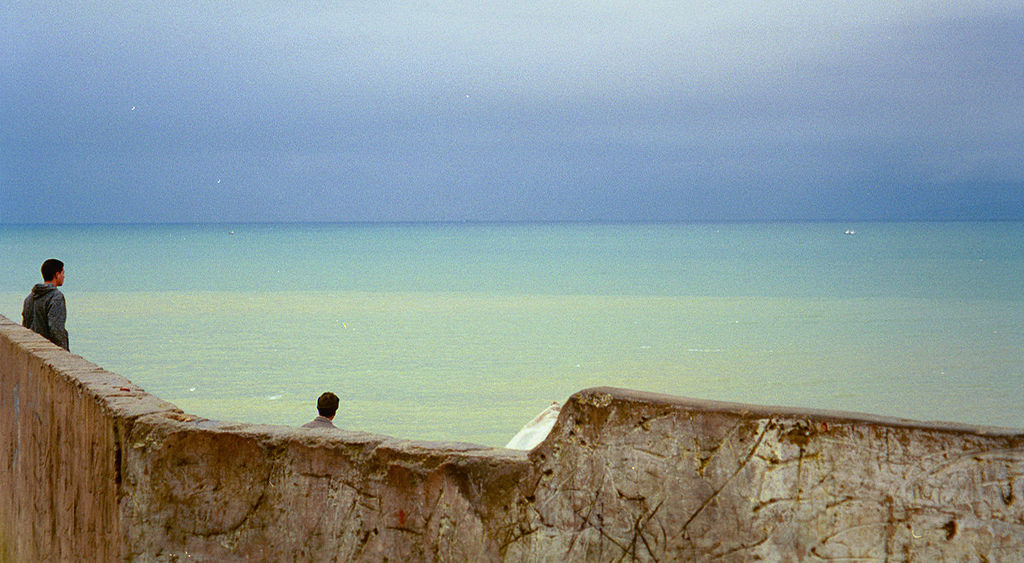
One of the best novels I’ve read in the past year is Mattias Enard’s 2014 Street of Thieves. Funny and heartrending, it traces the fate of Lakhdar, a prematurely gray-haired teenager from a middle-class family in Tangier, whose young life unravels after he is caught having sex with his cousin. His parents beat and disown him, and he becomes homeless for a spell, sometimes turning tricks to survive (his cousin’s fate is worse). Lakhdar’s love for French detective novels and the foreign worlds they conjure is a large part of what gets him through the ordeal. The story takes place during the events of the Arab Spring, and an Islamist breeze has begun to blow through the cosmopolitan port town. Lakhdar gets off the street when his childhood best friend, Bassam, introduces him to a visiting Saudi sheik, who provides lodging and employment at his new bookshop, The Center for the Propagation of Koranic Thought. Simple, girl-crazy Bassam, who had until recently spent his days smoking kif at the waterfront and fantasizing about crossing the Strait of Gibraltar into Spain, falls deeper under the sway of the French-educated sheik.
Lakhdar himself is culturally a Muslim, even somewhat religious, and he prays throughout, even as he delights in the simple pleasures of a beer and a book, or the sensation of a young woman’s embrace. He spends his time at The Center for the Propagation of Koranic Thought sending out high-minded Facebook missives to random girls in Spain. About Judit, a friendly tourist from Barcelona whom he charms in a café, he frets, “How could I tell her I was a practicing Muslim without coming off as an enemy of Western women, more or less reactionary?” Talented and ambitious, hungry for the world beyond his own back yard and a relationship with Judit, but blocked by borders both real and artificial, Lakhdar eventually becomes an illegal immigrant teaching Arabic in Barcelona after having scraped together a living collecting the remains of drowned African migrants fleeing circumstances more desperate than his own.
“Perhaps we can’t really picture death unless we see our own corpse in others’ bodies,” he reflects. That one line, which explains so much about the world we inhabit, haunts me still.

